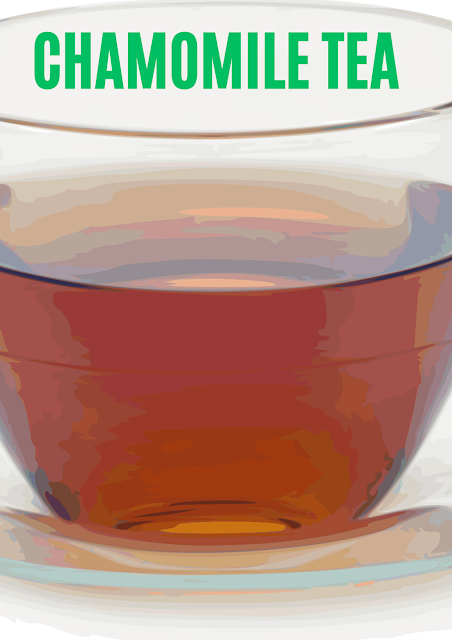Chamomile Tea
A Timeless Remedy for Health and Relaxation
Chamomile tea, derived from the dried flowers of the Matricaria chamomilla or Chamaemelum nobile plant, is a popular herbal infusion known for its soothing properties. With a history rooted in ancient medicine, chamomile tea continues to be a widely consumed beverage for promoting relaxation, alleviating various ailments, and enhancing overall health.
Origins and Composition of Chamomile
Chamomile has been used for thousands of years in traditional medicine systems such as Ayurveda, Traditional Chinese Medicine, and European herbalism. Its therapeutic properties are attributed to the bioactive compounds present in its flowers, including apigenin, chamazulene, bisabolol, and flavonoids. These compounds exhibit anti-inflammatory, antioxidant, and antimicrobial properties, making chamomile a versatile remedy.
Health Benefits of Chamomile Tea
1. Promotes Relaxation and Sleep
Chamomile tea is best known for its calming effects, making it a popular choice for improving sleep quality and reducing stress.
Scientific Evidence: A 2017 study published in Phytomedicine demonstrated that chamomile extract significantly improved sleep quality in individuals with insomnia.
Mechanism: The flavonoid apigenin binds to benzodiazepine receptors in the brain, producing a mild sedative effect.
Practical Application: Drinking chamomile tea before bedtime can help reduce anxiety and promote restful sleep.
2. Supports Digestive Health
Chamomile tea is often used to alleviate digestive discomfort, including indigestion, bloating, and cramps.
Scientific Evidence: Research in Molecular Medicine Reports (2010) highlighted chamomile’s ability to relax gastrointestinal muscles and reduce inflammation.
Mechanism: The antispasmodic properties of bisabolol and chamazulene help soothe the digestive tract.
Practical Application: Consuming chamomile tea after meals can aid digestion and relieve symptoms of irritable bowel syndrome (IBS).
3. Anti-Inflammatory Effects
Constant irritation is a contributing element to numerous infections, including joint inflammation, coronary illness, and diabetes Chamomile’s anti-inflammatory properties can help mitigate these risks.
Scientific Evidence: A study in Life Sciences (2009) found that chamomile extract reduces inflammatory markers and oxidative stress.
Practical Application: Regular consumption of chamomile tea may help manage inflammatory conditions.
4. Boosts Immune Health
Chamomile tea can enhance the immune system and help the body fight off infections.
Scientific Evidence: A study in The Journal of Agricultural and Food Chemistry (2005) reported increased urinary levels of hippurate, a marker of immune activity, after chamomile tea consumption.
Mechanism: Chamomile’s antimicrobial and antioxidant compounds support immune function.
5. Menstrual Pain Relief
Chamomile tea is a natural remedy for menstrual cramps and discomfort.
Scientific Evidence: A study in Iranian Journal of Obstetrics, Gynecology, and Infertility (2010) found that chamomile tea reduced the intensity of menstrual pain and improved psychological well-being.
Mechanism: The tea’s anti-inflammatory and muscle-relaxant properties ease uterine contractions.
Practical Application: Drinking chamomile tea during menstruation can alleviate cramps and promote relaxation.
6. Cardiovascular Benefits
Chamomile tea may contribute to heart health by lowering blood pressure and cholesterol levels.
Scientific Evidence: Research in Pharmacognosy Review (2011) indicated that chamomile’s antioxidant compounds help reduce LDL (bad cholesterol) and improve vascular health.
Practical Application: Incorporating chamomile tea into a balanced diet can support cardiovascular well-being.
7. Skin Health
The anti-inflammatory and antimicrobial properties of chamomile make it beneficial for skin health.
Scientific Evidence: A study in The Journal of Clinical and Aesthetic Dermatology (2011) found that chamomile extracts effectively reduced symptoms of eczema and dermatitis.
Practical Application: Chamomile tea can be consumed or applied topically to soothe irritated skin.
Preparation Methods
Chamomile tea is easy to prepare and can be customized with additional ingredients for flavor and health benefits.
Ingredients:
1-2 teaspoons of dried chamomile blossoms or a chamomile tea sack
1 cup of boiling water
Instructions:
Place the dried chamomile flowers or tea bag in a cup.
Pour boiling water over the flowers.
Let the tea steep for 5-10 minutes.
Strain the tea (if using loose flowers) and add optional ingredients as desired.
Potential Side Effects and Precautions
While chamomile tea is generally safe, it may not be suitable for everyone. Potential side effects include:
1. Allergic Reactions:
Individuals allergic to plants in the Asteraceae family (e.g., ragweed, daisies) may experience allergic reactions to chamomile.
2. Drug Interactions:
Chamomile may interact with anticoagulants, sedatives, and medications metabolized by the liver.
3. Pregnancy Precautions:
Pregnant women should consult a healthcare provider before consuming chamomile tea, as it may stimulate uterine contractions.
4. Contamination Risk:
Use high-quality, reputable brands to avoid contamination with pesticides or heavy metals.
Scientific Evidence Supporting Chamomile Tea
Sleep Quality: Zick, S. M., et al. (2011). The effectiveness of chamomile tea on sleep quality. Phytomedicine.
Digestive Health: McKay, D. L., & Blumberg, J. B. (2006). A review of the bioactivity and potential health benefits of chamomile tea. Molecular Medicine Reports.
Anti-Inflammatory Effects: Srivastava, J. K., et al. (2010). Chamomile: A herbal medicine of the past with bright future. Life Sciences.
Immune Support: Segal, R., et al. (2005). Hippurate and glycine excretion after chamomile tea ingestion. The Journal of Agricultural and Food Chemistry.
Menstrual Pain: Jenabi, E. (2010). The effect of chamomile tea on primary dysmenorrhea. Iranian Journal of Obstetrics, Gynecology, and Infertility.
Conclusion
Chamomile tea is a time-honored remedy with a wide range of health benefits, from promoting relaxation and digestive health to supporting the immune system and alleviating menstrual pain. Backed by scientific evidence and centuries of traditional use, it remains a safe and effective choice for enhancing well-being. While generally safe, individuals with specific allergies, medical conditions, or pregnancy should consult a healthcare provider before consuming chamomile tea. By incorporating this soothing herbal infusion into your daily routine, you can enjoy its numerous therapeutic properties and enhance your quality of life.
Note:
